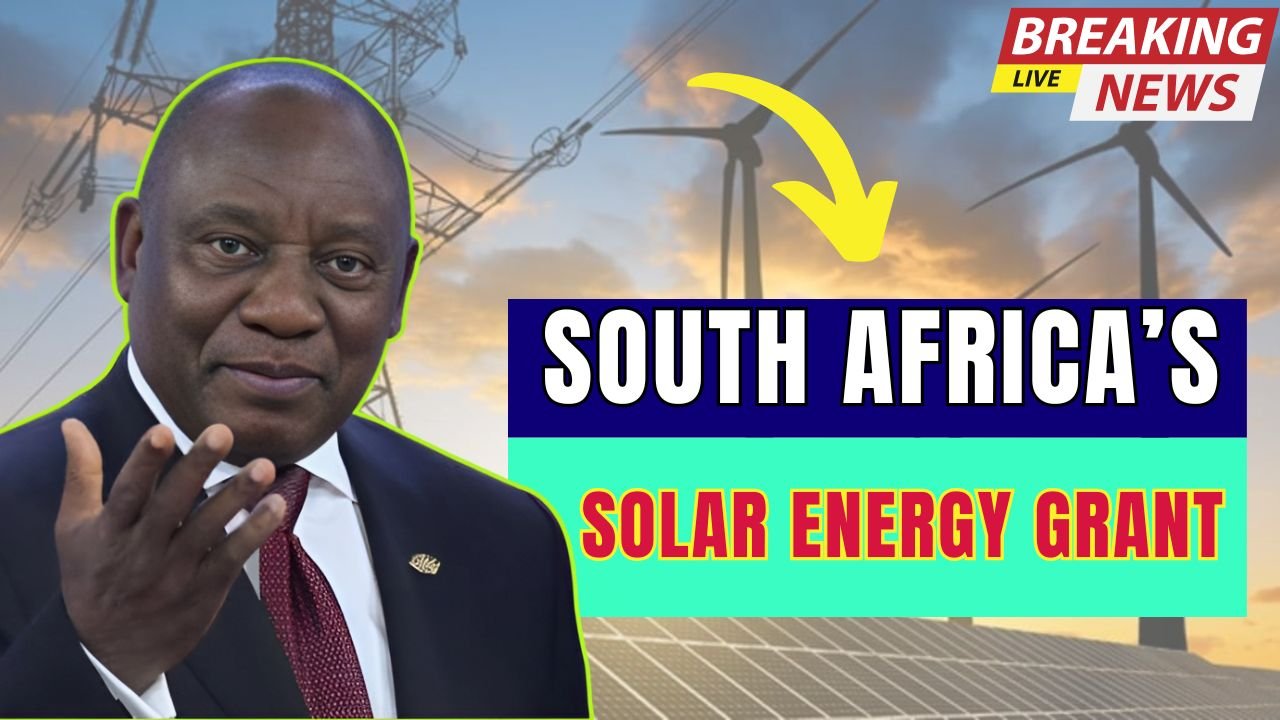The Solar Energy Grant is the only active governmental program to promote clean-energy adoption for launching South Africa’s transition into renewable energy. Intended as a solution to the country’s energy crisis while at the same time reducing carbon emissions, the grant would provide funds to install solar panels for a house, business, or community. Below is an overview of some of the critical matters relating to the grant, including eligibility, benefits, the application process, and the impact, as offered by greencommunities.co.za.
Eligibility Criteria
Under South African laws, an imposed opportunity for choosing an applicant has to be exercised across the renewable sector. Beneficiary owners may include small and medium enterprises (SMEs) as well as community bodies. Particular consideration is given to the lower-income classes and under-serviced areas.
The verification of the property location would therefore naturally have to be done, for a justifiably logical down-payment for the solar panel installation. Usually, such exercise includes some energy audit to determine its feasibility. Preference would be given to those applicants living in areas either subjected to load-shedding or having poor access to the grid. A business, in turn, must show that the withdrawal of this grant will induce job creation or reduce energy costs in the promotion of South Africa’s green economy agenda.
Grant Benefits
These grant awards serve as major financial relief, and installation assistance is given up to a maximum of 50 percent of all costs of solar energy installation. The grant amounts depend on the size of the company and household system, which can go as high as 250,000 Rand per SME project.
Offering such a generous assistance scheme equates to saving on electricity accounts by about 70 percent, depending on the level of consumption and size of the system. For lower-income families, this equates to about R5,000 to R10,000 per annum.
There is energy independence in the process; hence, this cuts the dependence on the unstable Eskom grid affected by load shedding. The lesser carbon emission means greater green incentives as per the South African climate pledge.
Application Process
An elementary yet exhaustive application and registration framework shall be followed to apply for the Solar Energy Grant. The applicant shall submit applications either through the Department of Mineral Resources and Energy directly or through its agents and partners, such as the DBSA. Other documents include proof of ownership of the land; an energy audit report; and a detailed project proposal emphasizing specifications of the solar system.
Applicants are encouraged to select only approved renewable energy contractors to comply with technical standards. Applications shall be accepted per facility until 30 September 2025, while the processing time varies from 4 to 8 weeks. Applicants are thus encouraged to apply early given high demand vis-a-vis reserved funds.
Impacts on Community
Given that the solar installation was perhaps an altogether new field in Southern Africa with a rural, disadvantaged population, the Solar Energy Grant pays for solar installations at community buildings such as schools or clinics.
These grants are the last stipulation against energy deprivation when unforeseen circumstances like natural calamities occur. Also, there is a strong potential for job creation in training local installers, which will in turn galvanize economic development.
The number of houses is about 1,000 along with 50 community projects and 10,000 tons of carbon emission prevented per annum by 2025. This is meant to address energy poverty and inculcate green lifestyle practices within communities.
Hence, South Africa’s Solar Energy Grant is a true breakthrough in the path toward a sustainable and energy-secure nation, reckoning with lower perplexity and higher burstiness. It opens avenues for solar power to be tapped both for domestic and commercial means, thereby creating a whopping number of opportunities for environment and economy.
Also Read : South Africa Teachers’ Salary Hike 2025: New Salary Structure Released





